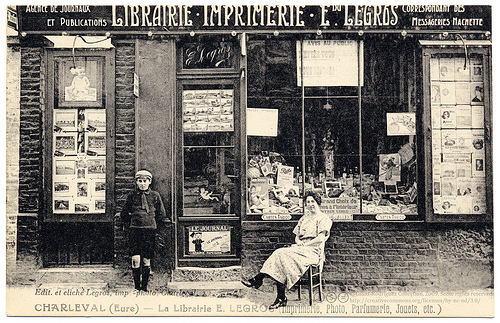
I mentioned recently that I’m beginning to do speaking engagements, and one of my steps in preparing for this has been to take the topics I chose to focus on at the start and come up with the strongest titles for them I could find. I didn’t want hype: I wanted to come up with titles that loudly and proudly promised exactly what I was going to deliver, and did it in a way that would get the attention of my target audiences.
I already have an article on titles for fiction (“Luc’s Desiderata of Titling“), which is an entirely different process. It has similar intentions, but uses completely different methods. For non-fiction, I have experience but had never really thought out the possibilities, so I did some research, reading articles other people wrote about titling, evaluating titles I felt were really effective, and experimenting with everything I found.
Two of the most useful articles I found are freely available on the Web: “Presentation Titles That Attract an Audience” by Olivia Mitchell and the section I’ve linked to in “Answer People’s Key Question” by Craig Hadden.
From this groundwork, I’ve come up with 14 patterns that can be used to brainstorm arresting titles for how-to articles, blog posts, keynotes, etc. For each pattern, I’ve made up an example to demonstrate, although many of these patterns can be used in a wider variety of ways than the single example would suggest. The invented titles are meant to demonstrate how each pattern can work well, so if it’s successful, each one should intrigue you (at least, if you’re in the right target audience for that title).
1. How to ___ (optionally include a benefit)
“How to Stop Micromanaging Your Children for Their Happiness and Yours”
2. How (noun) (verbed)
“How the Dishwasher Changed the Way We Eat”
3. X {keys, ways, requirements, challenges, ideas, etc.} to/for ______
“3 Keys to Never Forgetting Another Name”
4. (New research/information/etc.)
“New Research on the Best Way to Exercise”
5. X Common Mistakes ______
“3 Common Mistakes We Make When Choosing a Spouse”
6. The X Worst _____
“The 5 Worst Ways to Teach Math”
7. (The Truth/Secrets/Hidden Information)
“What Your Child Is Really Doing at ‘Student Council Meetings'”
8. How Can I ____ ?
“How Can I Be On Time, Every Time?”
9. Do (something desirable) by/with ______
“Get Crucial News Faster Using This Smartphone App”
10. (Catchy phrase or intriguing promise): (explanatory subtitle)
“Be Rich Instantly: How to Realize Your Desires Without Paying a Cent”
11. ______ versus (something similar but suggestively distinct)
“The Successful Novel vs. the Best-Selling Novel”
12. What/How (some enviable group of people) ____ Differently
“How The Most Successful People in the World Learn Differently”
13. (Common thing or phrase) (uncommon contrast or claim)
“Safe Investments –Why They Haven’t Existed Since 1992”
14. (Brief time or other suggestion that this will be quick or easy) (action or role)
“12-Minute Math Boosters”
The general theme is the same throughout: all of these types of titles are promising something that’s valuable and new to the audience or reader. They only differ in how they’re attempting to capture someone’s interest. I’d suggest that this is what a non-fiction article or speech is about: offering new information that has value. We can just slap titles that are pretty or that play with words on if we just need a handle, but that means the title isn’t doing the work it could do. On the other hand, we may have a topic that does all the work itself, for instance “Archbishop Dies In Lemming Attack” or “Exxon to Convert to Worker-Owned Cooperative.”
Some of these title formats are familiar from magazines that over-promise, and I hope that neither you nor I will ever do that with our own titles. Titles like “The 4 Foods That Melt Fat Overnight” and “Make a Killing in Real Estate With These 3 Easy Tips” are hype rather than promise, and fulfilled promises are what it’s all about.
A writer friend pointed out that some titles that use these patterns can come across sounding like hype even if they may have something real to offer. Obviously, we want to avoid that too.
I used this list to brainstorm titles for my four initial speaking topics, and then I asked people in my writing group to review the titles and mark any that they liked or disliked. In the near future, I should have a chance to post those brainstormed titles and the total response each one got. By the way, this survey process has turned out to be very educational: I recommend it for working out especially important titles.
Of course, these options don’t begin to exhaust the possibilities, but they do reflect a healthy percentage of what seem to me the most successful titles of this kind out there. I expect to update this article over time (completely screwing up the number in the title) as I come across more of them. Do you know of any? Suggest them in the comments, if you’d be so kind–or use comments to take issue with any of the above approaches you don’t like.
Photo by Amy




